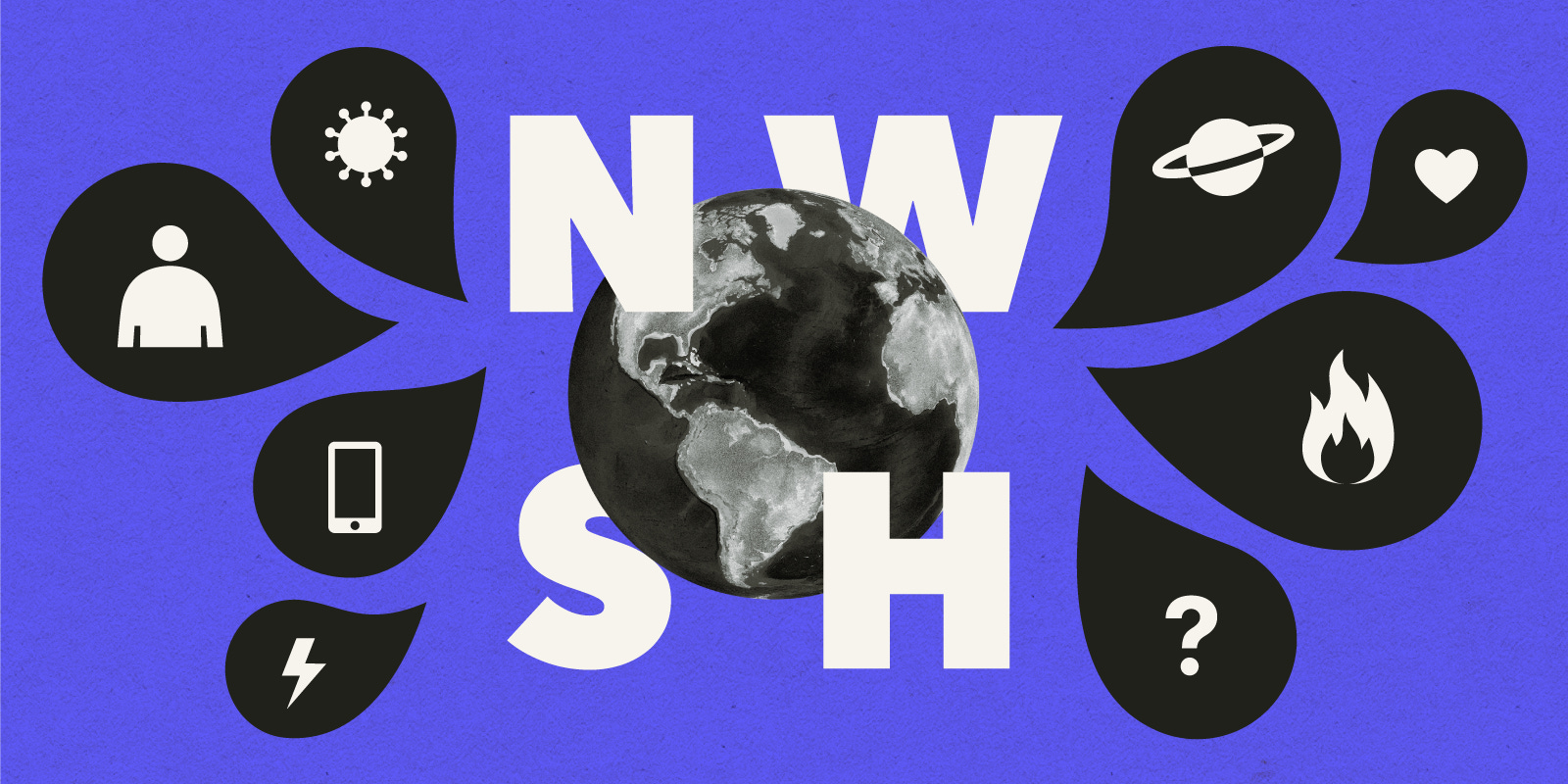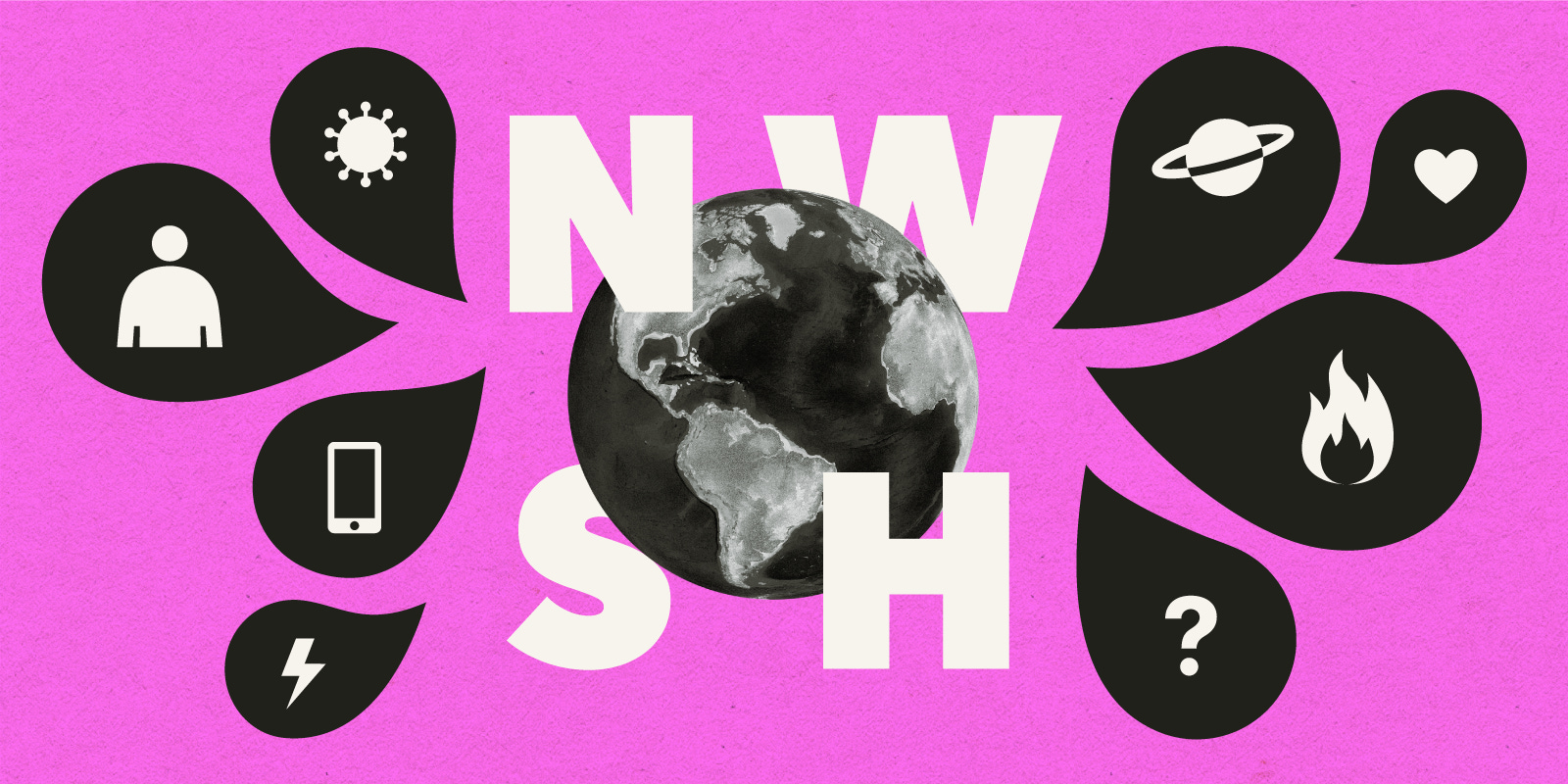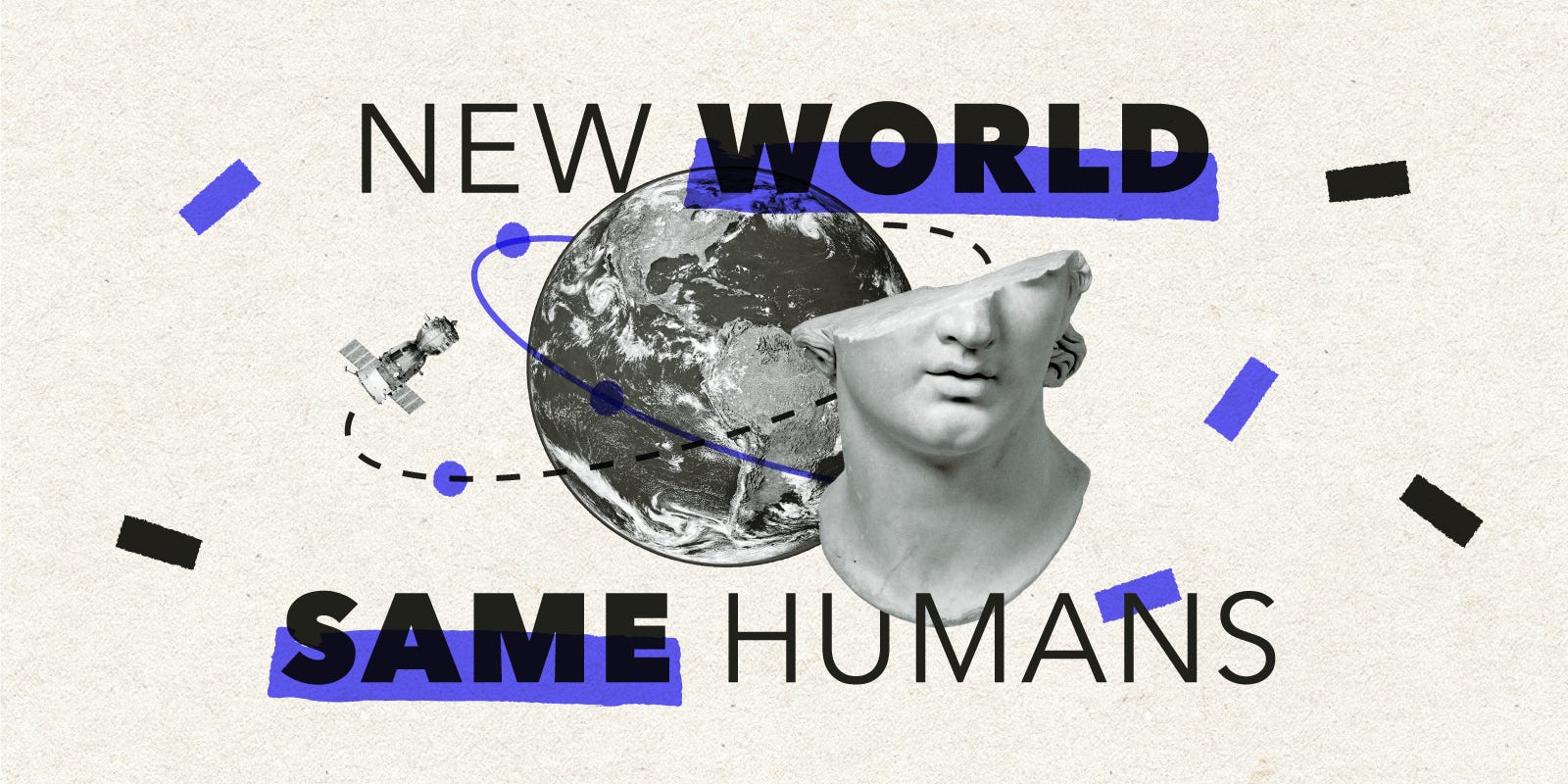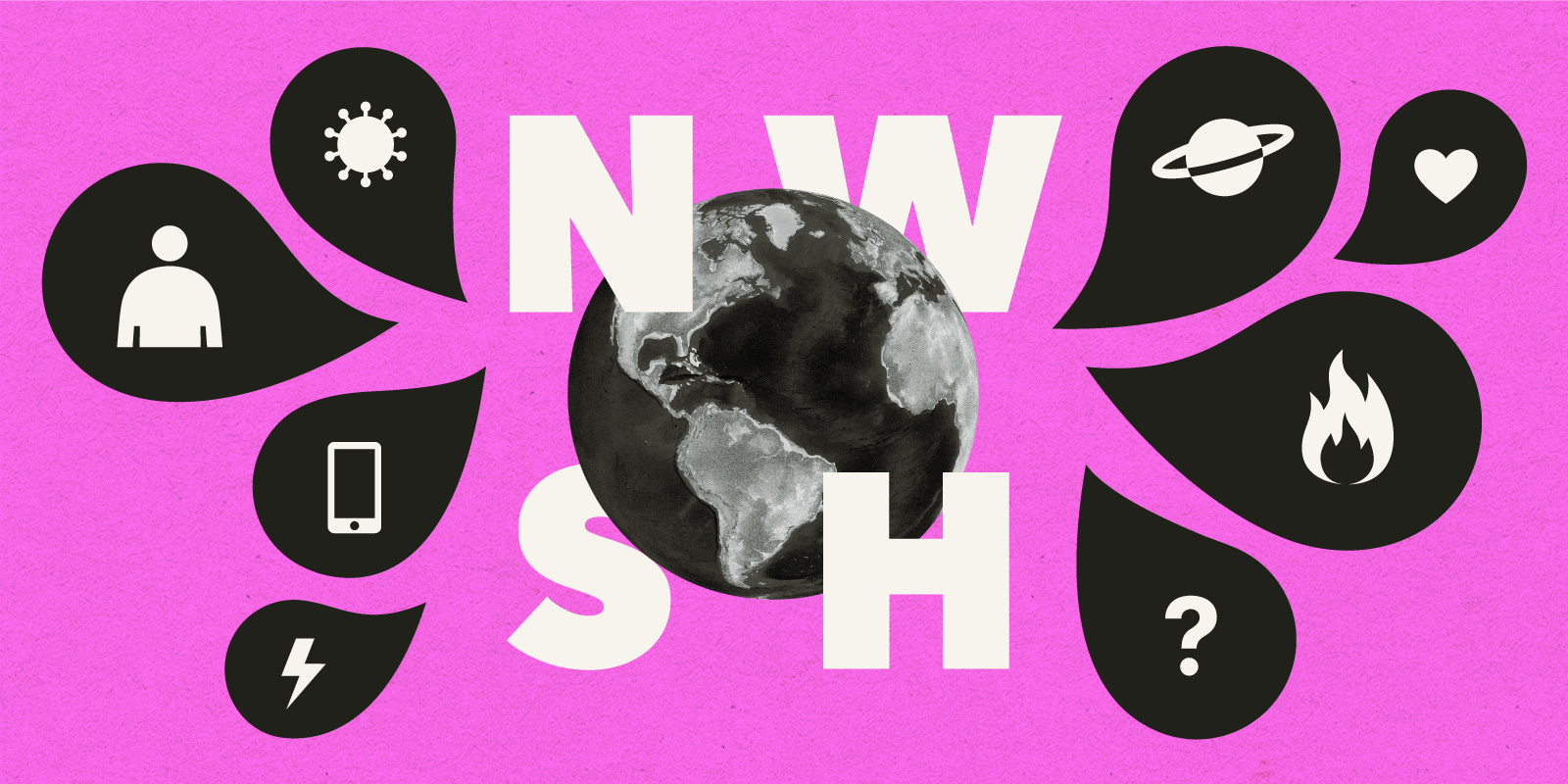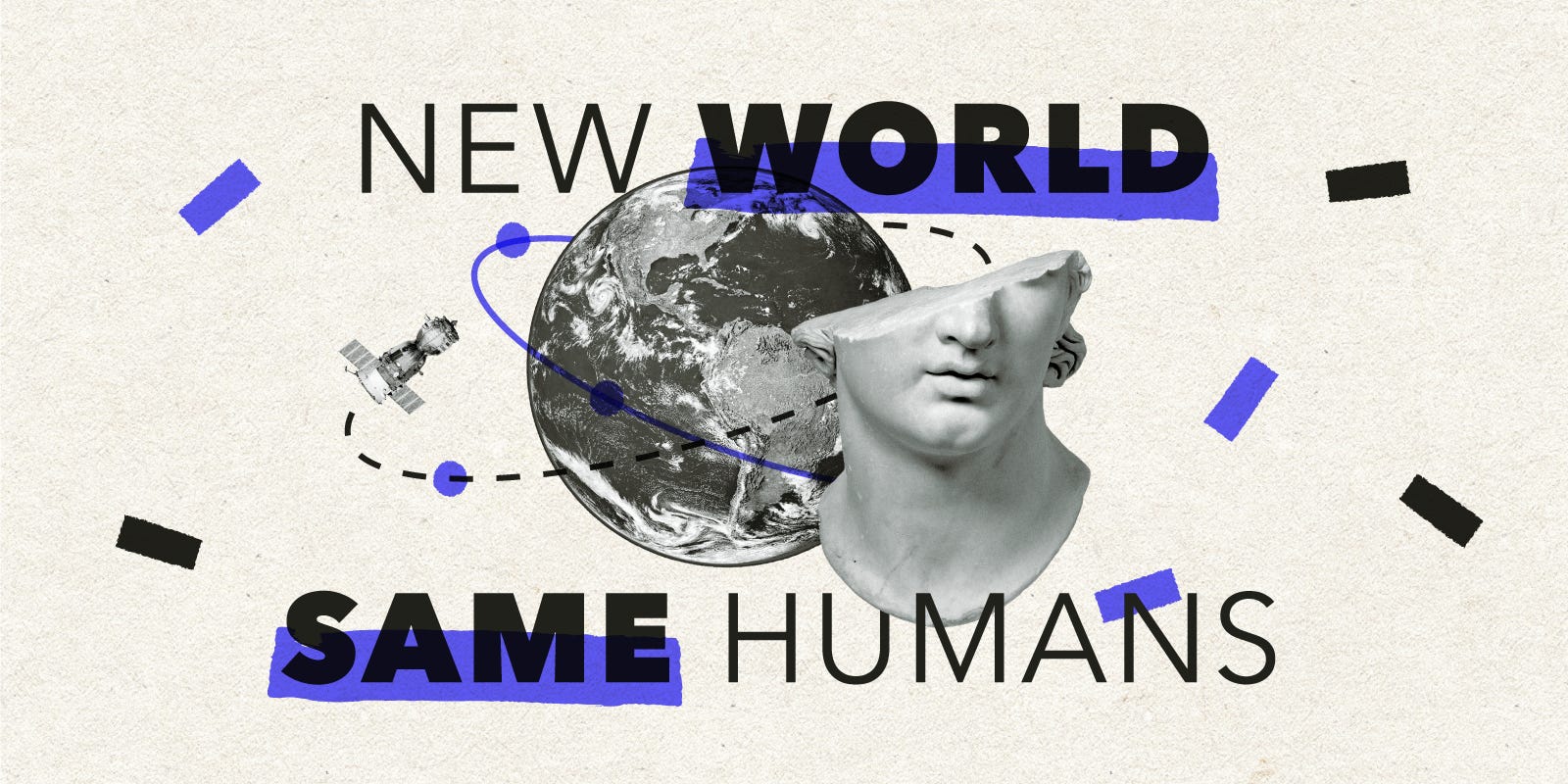New Week #125
Description
Welcome to the mid-week update from New World Same Humans, a newsletter on trends, technology, and society by David Mattin.
If you’re reading this and haven’t yet subscribed, join 25,000+ curious souls on a journey to build a better future 🚀🔮
To Begin
This week, Microsoft and Nvidia go head to head with new chips intended to train the next generation of AI models. And a clever hoax underlines a powerful truth when it comes to the war for compute power.
Meanwhile, a viral tweet about viral TikToks engenders another viral tweet. The lesson here? We’re living in a deeply enweirdened informational environment.
And in a world first, the UK approves a CRISPR-fuelled medicine.
Let’s go!
👾 Compute wars
This week, a glimpse of an emerging power struggle set to help shape the decades ahead. This isn’t a battle for land or natural resources. I’m talking about the struggle for compute power.
Microsoft announced their first and long-awaited custom AI chips, the Azure Maia AI chip and Cobalt CPU. Set to arrive in 2024, the chips will power Microsoft’s Azure data centres, and are intended to train the next generation of large language models (LLMs).
And Nvidia launched its new H200 AI chip, the successor to the H100. The iconic H100 is the fuel that’s driven this AI moment; huge clusters, consisting of tens of thousands of H100s, were used to train pretty much every large AI model you can name, including GPT-4.
Meanwhile, something quite different. A mysterious company called Del Complex announced the BlueSea Frontier Compute Cluster: a massive offshore data centre intended to circumvent the new the US Executive Order that says organisations training the most powerful new AI models must share information with government.
Del Complex calls BlueSea Frontier ‘a new sovereign nation state’. The announcement post achieved 2.5 million views, and was accompanied by a fancy website featuring images of BlueSea scientists at work. Tech blogs reported on the launch.
But wait; it is all a hoax! BlueSea Frontier is a comment on the These Strange Times by an artist and developer called (or so he claims) Sterling Crispin.
But I think Crispin may be onto something.
⚡ NWSH Take: The Del Complex hoax was a great bit of online trickery. But it was so convincing because it taps into a deep underlying truth. Compute is becoming a crucial nexus for techno-economic, sovereign, and geopolitical power. // The tech battle taking shape here is just one dimension of a broader story. Microsoft need to supply huge compute resources to their partner OpenAI to allow it to fully commercialise ChatGPT and train the upcoming GPT-5. So far, their data centres have been dependent on Nvidia AI chips. The new Maia AI and Cobalt CPU chips are intended to change that. // The broader story? It’s now clear that those nation states with the best machine intelligence will own the geopolitical future. The USA and China are now locked in a race to develop the vast compute needed to develop ultra-powerful next-generation models. Last year’s US CHIPS Act devotes $280 billion to semiconductor and AI research; inflation adjusted that’s more than the cost of the entire Apollo moon programme. And last week I wrote about new US restrictions on chip exports, intended to hamper China’s AI efforts. // It wouldn’t surprise me, then, if we do see the establishment of new offshore compute clusters, or even the development of new pseudo-sovereign entities based around compute power and AI. As with all the best satire, Del Complex’s vision is so wild it might just come true.
🔍 Can’t handle the truth
Also this week, another reminder of the hall of mirrors that is our new and connected media environment.
US journalist and X (formerly Twitter) personality Yashar Ali went viral with a tweet about TikTok. Ali claimed that across the previous 24 hours, many thousands of TikToks had been posted in which mostly young north Americans claimed to have read and agreed with Osama bin Laden’s notorious 2002 ‘Letter to America’ manifesto.
In the comments, theories abounded. Some said it was a signal of gen Z’s misguided politics. Others saw conspiracy, and said it was another indication that China is using TikTok as a channel for sophisticated psyops intended to destabilise the Global North. We should, said those people, ban TikTok.
Then another X user went viral with a different idea. These Bin Laden TikToks were being made and seen in huge numbers, he said, only because of Yashar Ali’s original tweet.
Other people said that was stupid, and itself tantamount to a conspiracy theory.
Meanwhile, this week the EU decided it would stop all advertising on X due to ‘widespread concerns relating to the spread of disinformation’. This follows EU research published in September which concluded that X is now the biggest online source of disinformation.
⚡ NWSH Take: Is TikTok an app for fun dance memes or a highly sophisticated channel for Chinese cultural warfare? Is the X algorithm now giving higher priority to toxic content, or is that just anti-Elon paranoia? Did thousands of young north Americans organically discover and agree with the Bin Laden letter, or is a dark controlling force at work? // The answer in every case: no one knows for sure. And that in itself is an indication of where we’re at. // The information environment that mediates our democracies has become insanely fragmented and opaque. The world’s richest man has total control over a key global information channel. The CCP has its hands around another. In both cases, I find it impossible to believe that the parties in question aren’t up to some tricks. // A totally connected world, in which every individual is empowered with a voice of their own, was supposed to create information nirvana. Those who bought that idea couldn’t have been more wrong. We need old media principles — editorial standards and, yes, gatekeepers — more than ever. But millions in the global north are currently convinced that the New York Times and the BBC are the real problem. In this increasingly chaotic and paranoid information environment, those institutions and others like them need to adapt rapidly. Most of all, they must rejuvenate belief in what they offer.
🧬 Major edits
Huge CRISPR news this week.
The UK’s medicines regulator became the first in the world to approve a medical treatment that uses CRISPR gene editing technology. The medicine, Casgevy, is a treatment for sickle cell disease, a serious inherited disorder that causes red blood cells to malfunction and that affects millions worldwide.
During treatment, red blood-producing stem cells must be taken from the patient. CRISPR is used to edit those stem cells to remove the error that causes sickle cell, before the edited cells are infused back into the patient.
Meanwhile, researchers at the Chinese Academy of Sciences created a monkey using two embryos, with donor material from one embryo injected into another. This has been done before with simpler animals such as mice and rats, but is a first in primates.
The donor stem cells were gene edited to express a green fluorescent protein, causing the resultant live monkey to glow:
⚡ NWSH Take: Gene editing technology is already enacting a transformation in the life sciences, healthcare, and agriculture. This CRISPR sickle cell treatment is wonderful news, and there are promising early indications from trials of CRISPR therapies to cure a form of hereditary blindness, and to train immune cells to fight certain cancers. Meanwhile, in September 2021 Japanese startup Sanatech Seed became the first company to sell CRISPR-edited food: their tomatoes were edited to contain more GABA. // So we’re developing our ability to manipulate genes. The next revolution coming? That ability will collide with a new ability to speak the language of DNA via transformer models — the kind of models that underlie LLMs — trained on huge amounts of genomic data. The resultant AIs will be able to discern deep underlying patterns that help us zero in on useful or rogue genes; see DeepMind’s new <a target="_blank" href="https://deepmind.google/dis




